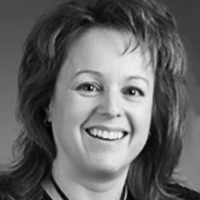This text-based course is a transcript of the webinar, Social-Pragmatic Language Group Treatment for Adolescents with Language Impairments and Psychiatric Diagnoses, presented by Christine Lackey, MS, CCC-SLP, BCS-CL and Adam Diggs, MA, CCC-SLP.
Learning Objectives
After this course, the reader will be able to:
- Determine two essential components of social communication as indicated by ASHA's Practice Portal
- Identify three classifications of social skills deficits
- Recognize five components of positive characteristics of a group facilitator
- Define the key components of a social-communication group lesson plan
Social Communication: Definitions and Research
This seminar is the third in a series of presentations for SLPs working with children and adolescents with social-emotional-behavioral disorders. The first course covers some of the mental health diagnoses and needs of patients that we see with these diagnoses. The second course deals with behavioral strategies. Both of these courses can be found on SpeechPathology.com. We encourage you to view those presentations to paint a better background picture of this topic.
The ASHA Practice Portal provides an excellent resource for us to look at evidence-based practices for a variety of communication disorders. In particular, they have their practice portal on social communication disorders in school-age children. That's where we have obtained much of this background information, to give you an idea of why we're doing the kinds of groups that we do.
Social communication is defined as “the interrelated emergence of social interaction, social cognition, pragmatics, and receptive expressive language processing” (Adams, 2005). Breaking down this definition, there are two components to look at more closely: social interaction and social cognition.
One example of social interaction would include social competence with peers. Another example is the ability to “switch codes.” In other words, are they able to appropriately alternate between formal and informal communication? What are some of the gender and cultural influences involved? Are they able to resolve conflicts and build relationships? Social cognition is referring to theory of mind, emotional comprehension, regulation and expression, executive functioning, inferencing, and perspective taking. All of these components are part of the social interaction, and part of the social cognition piece.
Social Skills and Social Competence
Alternately, we, as therapists, want to help students gain their social competence. This is defined by Gresham as “the ability to establish and maintain successful social relationships, gain peer acceptance, initiate and maintain friendships, and to terminate negative relationships” (2001). Students with ADHD, significant learning disabilities, cognitive impairments and emotional disturbances will have difficulty with social competence.

